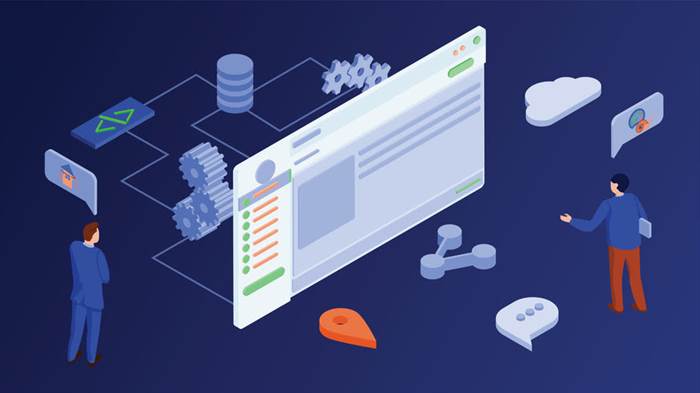For instance, regulation may require that important decisions be made by humans rather than machines. Or that cash spent on AI infrastructure comes with a price range for coaching humans to work with AI-powered units and techniques (upskilling) or to transition into jobs that can’t be filled by rising know-how (reskilling). Generative AI is more and more proving itself capable of creating usable content material from prompts, including in the age-old subject of CAD. Tools like PTC’s Creo are likely to discover themselves more and more augmented by inputs from artificial intelligence specializing in product design. There is no doubt that in the coming years, we are going to see more and more organizations turning to AI-powered options to stay related and aggressive. Artificial intelligence has already confirmed its potential within the manufacturing sector, and it’s only a matter of time before it becomes an important tool for every manufacturer.
Manufacturing is likely considered one of the highest-risk industrial sectors to be working in with more than three,000 main accidents and 9 fatalities occurring every year. The involvement of robots in high-risk jobs can help manufacturers cut back undesirable accidents. Digital twins enable manufacturers to gain a transparent view of the supplies used and supply the chance to automate the replenishment process. The COVID-19 pandemic additionally elevated the interest of producers in AI purposes. As seen on Google Trends graph below, the panic due to lockdowns could have compelled manufacturers to shift their focus to synthetic intelligence. The industrial manufacturing trade is the top adopter of synthetic intelligence, with ninety three % of leaders stating their organizations are at least moderately using AI.
Startups specializing in predictive maintenance know-how are significantly in demand. They helped PepsiCo’s Frito-Lay acquire four,000 hours of manufacturing capacity annually via its predictive maintenance techniques that decreased unplanned downtime and prices at 4 Frito-Lay vegetation. From automated factories to AI quality management, the primary goal of digital transformation is forging a competitive edge by way of know-how, resulting in enhanced customer experiences and reduced operational costs. With a lot information being produced every day by industrial IoT and smart factories, artificial intelligence has a number of potential makes use of in manufacturing. Manufacturers are more and more turning to synthetic intelligence (AI) options like machine learning (ML) and deep learning neural networks to better analyse data and make selections.

The outcomes are tangible, according to McKinsey, who discovered that machine downtime could be decreased by 30% to 50% and quality-related prices could be decreased by 10% to 20%, among other benefits. This system permits GE to regulate equipment well being, predict when machines need fixing, and make their production strains run smoother. Through knowledge analysis and machine studying, the Predix platform helps GE cut down on downtime and boost effectivity in their factories. By leveraging the ability of AI in manufacturing, companies are revolutionizing their approach to high quality management, making certain larger levels of accuracy and consistency. With AI, manufacturers can make use of computer vision algorithms to research images or movies of products and parts. These algorithms can determine defects, anomalies, and deviations from quality standards with exceptional precision, surpassing human capabilities.
Ai Order Administration
GE has integrated AI algorithms into its manufacturing processes to research huge volumes of information from sensors and historical records. GE can spot trends, predict probable equipment issues, and streamline processes by utilizing AI. By taking this proactive approach, GE also can cut back equipment downtime, enhance overall equipment effectiveness, and improve manufacturing operations efficiency. One of the key advantages of synthetic intelligence in manufacturing for model spanking new product improvement is the flexibility to investigate vast amounts of knowledge shortly and effectively. Manufacturers can gather insights from market trends, customer preferences, and competitor evaluation by leveraging machine studying algorithms. This empowers them to make data-driven selections and design merchandise that align with market calls for.
If gear isn’t maintained in a timely manner, corporations danger dropping valuable time and money. On the one hand, they waste cash and resources if they carry out machine maintenance too early. Manufacturing crops, railroads and other heavy gear users are increasingly turning to AI-based predictive maintenance (PdM) to anticipate servicing needs. A digital twin is a virtual https://www.globalcloudteam.com/ model of a bodily object that receives information about its bodily counterpart through the latter’s sensible sensors. Using AI and other technologies, the digital twin helps deliver deeper understanding about the object. Companies can monitor an object throughout its lifecycle and get critical notifications, similar to alerts for inspection and upkeep.
Supply Chain For Manufacturing: From Raw Supplies To Completed Merchandise
Leveraging AI and machine studying, manufacturers can improve operational effectivity, launch new merchandise, customise product designs, and plan future financial actions to progress on their digital transformation. While manufacturing runs on industrial belongings, expertise, and manufacturing processes, it’s workers and their experience that make it all attainable. However, the “Great Retirement” has created an unprecedented skill shortage in the manufacturing trade. Experienced employees with deep experience in processes and technologies are retiring in mass numbers as the workforce ages, leaving manufacturers scrambling to rent and upskill new talent. Generative AI can assist less experienced employees by offering coaching simulations and steering to reduce the training curve.

Many more applications and advantages of AI in manufacturing are possible, including extra correct demand forecasting and fewer materials waste. Artificial intelligence (AI) and manufacturing go hand in hand since people and machines should collaborate carefully in industrial manufacturing environments. Applications comparable to individuals who we’ve explored on the assembly room ground may also be applied after a product ships in order that service personnel can preserve products without sending them back to the producer. One day, these tools may be expanded to the average customer.While the potential for AI in service after sale is huge, there are nonetheless some questions earlier than the apply becomes commonplace. For instance, will an AI educated on probably proprietary product info be a safety threat for companies adapting that AI for public use?
Companies can use digital twins to better understand the inner workings of difficult equipment. The efficiency gains from AI integration translate into value and time financial savings, allowing assets to be redirected to extra crucial duties and alternatives. It often takes a decade to develop a drug, plus two more years for it to reach the market. Unfortunately, 90% of medicine fail in the clinical trial phases, resetting the clock. In manufacturing, for example, satisfying clients necessitates meeting their wants in varied methods, including prompt and precise delivery.
AI algorithms mix historic gross sales data with external components corresponding to weather situations, market tendencies, and financial indicators to make highly correct demand forecasts. By embedding AI capabilities into manufacturing facility machines and tools, producers can profit from automation, which allows them to optimize the overall manufacturing course of. The capability to increase operational efficiency is doubtless certainly one of the major advantages AI brings to manufacturers. By minimizing or automating repetitive duties, AI solutions enable workers to concentrate on high-value actions instead.
Prime Corporations Using Ai In Manufacturing
According to Capgemini’s analysis, greater than half of the European manufacturers (51%) are implementing AI solutions, with Japan (30%) and the US (28%) following in second and third. The true worth of machine monitoring lies in its capability to supply a clear, unbiased view of a facility’s operations. This accurate and quick knowledge assortment paves the means in which for the adoption of Artificial Intelligence. The journey of synthetic intelligence (AI) within the realm of manufacturing is a captivating and evolving narrative. It’s troublesome to know exactly what the current adoption fee of AI is, especially in discrete manufacturing.
Further on, we’re also helping clients improve data high quality and product attributes with generative AI. This specifically means implementing solutions which would possibly be able to aggregate and analyze information from relevant sources (including competitors’ websites), to add new attributes or extract attribute values from completely different sources. By tagging and categorizing products primarily based on their features, AI simplifies the search process, resulting in quicker and extra correct results. This not only reduces the time taken for customers to search out the proper products but also improves the overall customer expertise by making it extra personalized and convenient. By utilizing AI algorithms, manufacturers can automatically allocate assets, schedule duties, and optimize processes based on numerous components similar to demand, availability, and performance metrics. It permits producers to optimize every link of the provision chain – making it extra resilient and customer-centric.
The Reason Why B2b Companies Should Spend Cash On A Digital Buyer Portal Proper Now
At NETCONOMY, Nenad is liable for initiatives that contain enterprise evaluation, requirement engineering and specification for information, AI and enterprise intelligence. With his extensive experience in data science, Nenad helps prospects perceive their challenges and find correct expertise solutions to achieve enterprise targets. AI algorithms can analyze historical data from a variety of sources to understand where efficiencies happen and provide accurate forecasting on future deviations.
- AI-powered software like can predict materials costs more accurately than humans and it learns from its mistakes.
- They are constantly skilled with new information and can give predictions and alerts about anomalies, irregular patterns, or tools failure.
- Software powered by artificial intelligence might help companies optimise procedures to hold up excessive manufacturing charges indefinitely.
- This signifies a major volume of information being generated throughout the manufacturing sector, showcasing the industry’s substantial impression on the information panorama.
- With this technique, manufacturers rapidly generate thousands of design options for one product.
AI can help with all of these challenges by way of manufacturing-specific use cases that benefit producers, their employees, and their clients. These points, starting from community problems to non-standard configurations, are a part of the method. The agent not only identifies these issues but in addition suggests potential fixes, making the troubleshooting course of far more efficient ai in manufacturing industry. This method to connectivity ensures quick, efficient integration of machines, maintaining minor hiccups in stride. In the travel industry, AI has the potential to predict every thing from buyer demand to adverse weather. It’s crucial for every manufacturer to have a well-managed provide chain so that they have the elements they need when they want them.
AI systems can even take into account data from weather forecasts, as well as other disruptions to traditional delivery patterns to search out alternate route and make new plans that will not disrupt normal business operations. In one instance, the company installed an AI software to prevent the transportation of empty containers on conveyor belts. The tech also decides if a container must be connected to a pallet, and finds the shortest route for bins to be disposed of. Keep studying to see 5 ways that artificial intelligence is being utilized in manufacturing today. Some examples of this in practice include Pepsi and Colgate, which each use know-how designed by AI startup Augury to detect problems with manufacturing machinery earlier than they trigger breakdowns.
A manufacturing facility full of robot staff as soon as seemed like a scene from a science-fiction film, however at present, it’s only one real-life scenario that reflects manufacturers’ use of artificial intelligence. Electronic manufacturing also requires precision due to its intricate components, and AI may be critical in minimizing production errors, improving product design and accelerating time-to-market. A digital twin can be used to trace and look at the production cycle to identify potential high quality issues or areas where the product’s efficiency falls wanting expectations.